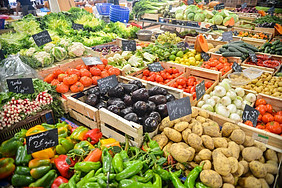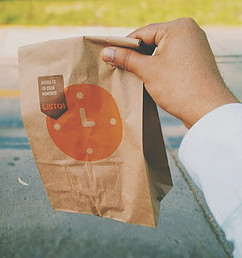Are you concerned about how and where food is made? You should be because each year about 30 percent of people in developed countries suffer from foodborne illness. And it is natural that you get worried or even angry. You want to protect yourself and your family from food diseases.
The Canadian Food Inspection Agency states: “If unsafe food gets into our grocery stores, it makes headlines. But unsafe food, which could lead to foodborne illness, can also happen from what we do—or don’t do—in our own kitchens.”
So what can you do to protect yourself and your family from foodborne illness? Here are some food and health facts that you should follow to make your food safer.
Shop Wisely
If you do not grow your own food, your first contact with the food will be in the store, be it at the market or a supermarket. So How can you tell which food is healthy?
- Plan your route – Here is simple advice from the Food Safety Information Council in Australia: “Shop for non-perishable food first. Leave [items from] the fridges and freezers to the end of your shopping.”
- Favor fresh food – Try to purchase fresh food when possible. A marketplace is usually the best choice to shop for fresh food and you can pick it out yourself. You can go to it early in the morning when the food is fresher.
- Inspect your food – When you look to buy something, guide yourself with these questions: Is the skin of my product intact? Does it smell bad or odd? IF the food is prewrapped, inspect the packaging. Look for the expiration date printed on the package. If a date has expired, no matter if food still looks, smells and tastes good, it still can make you sick.
- Pack safely – If you use a reusable shopping bag, wash it out sometimes with hot water and soap. Meat and fish should be carried in separate bags so they don’t come in touch with other food.
Keep It Clean
All efforts from shopping would come to waste if you fail at home. Just like the surgeon protects his patients by washing his hands, sterilizing his instruments and maintaining a clean operation room, you too should keep yourself, your kitchen and your food clean. How?
Well, for starts to wash your hands. This is one of several things you NEED to do in order to improve your health. 80 percent of common infectious diseases like cold or flu are spread with hands. So be sure to wash them with soap and water frequently, ESPECIALLY after using the toilet and before preparing a meal.
Keep your kitchen clean. Do you think your kitchen is the cleanest place in the house? Perhaps it is. But did you know that in the house, the most contaminated place with bacteria is sponges and dishcloths in the kitchen? Therefore, change them on a regular occasion and use hot soapy water to clean the kitchen surface.
Always wash your food, even if you plan to peel fruits and vegetables, they may be contaminated by unclean water or other raw food items. Rinse them through the water to remove harmful bacteria. Yes it will take some time, but try not to rush it; wash your greens thoroughly.
Separate your meat and seafood from other food. It is always a smart option (and it should be done) to use a separate cutting board and a kitchen knife for those foods, or wash cutting board and knife with hot water and soap after you have done with one type of food and before you go on next.
Prepare And Store Food Carefully
Some food that is prepared carelessly can be harmful or even deadly, so learning to prepare food is always a step that should be considered.
Do not unfreeze meat at room temperature. Though the middle of the meat may still be frozen, the outer layer of the food could be at an idle temperature suitable for rapid bacteria multiplying. Unfroze your food in a refrigerator or under cold water in a package that will not leak.
When you cook your food (especially soups and stews), be sure that the temperature reaches at least 70°C. After you have cooked your food, do not leave it at room temperature for too long. Serve it soon, immediately if possible, to prevent spoilage. If needed, you can keep hot mean in an oven set at approximately 93°C.
Of course, not always will you eat everything that you cooked. What do you do with leftovers? Do you have pets? You could give it to them, or if you plan to use it yourself, separate it in small portions and freeze it so it will be easier to defrost it once needed.
On the other hand, if food is left in the refrigerator, be sure to eat it within three to four days. That is if you are cooking at home. But what when you are eating out, in a restaurant?
Be Observant When Eating Out
In some countries, it is a habit to eat out and not cook at home. Sure, it is convenient, and for some people that are working much, almost a need to eat that way. But just because someone else is purchasing ingredients, cleaning the kitchen and  cooking the food doesn’t make them suitable to eat there.
cooking the food doesn’t make them suitable to eat there.
You can decide where to eat, what you eat and how you pack any food that you are taking home. And you should be choosing what is best for you. So the first thing that you need to do when enter in a restaurant is to look around you. Look if the tables and dishes are clean and the servers are clean and tidy. If you don’t like what you see, leave and look for another restaurant.
Once you pick the place where you will eat, and you decide to take leftovers, ask the waiter to pack your food in aluminum foil and then in a paper bag. Go directly home after your meal and store your food in the refrigerator. If you know you won’t be home within two hours, don’t take the leftovers with you.
Conclusion
As you can see, there are several ways how we can make food safer. Following this food and health facts that we mentioned will help you maintain your health and prevent many possible foodborne illnesses.
If you find this article useful, why not share it on social media? Also, feel free to comment and ask questions if you want to know anything more. Or send me a message at dalibor@best4yourbody.com.
I am looking forward to seeing your comments. Have a great day and till next time, remember, your body deserves best, and so do you!
Dalibor



2 thoughts on “Food And Health Facts – 4 Ways To Make Your Food Safer”
Great advice on food storage and keeping us healthy. I see vacuum packing is becoming more popular what are your thought on
that?
Personally I don’t like it as it puts my food in direct contact with more xenoestrogens in plastics for longer periods of time.
Hi Derek,
thank you for your comment.
Personally, I Love them if I use them right away. If not, I tend to buy fresh from the market what I can.
Regards,
Dalibor